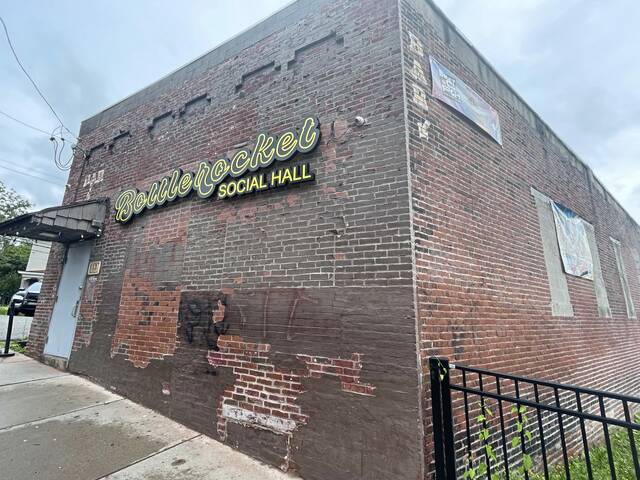https://triblive.com/aande/music/were-barely-scraping-by-pittsburghs-live-venues-urge-amusement-tax-exemption/
‘We’re barely scraping by’: Pittsburgh’s live venues urge amusement tax exemption

A group of live entertainment venue owners and promoters are urging Pittsburgh officials to help them stay afloat, pitching ideas like an exemption from the city’s 5% amusement tax.
Adam Valen, director of marketing at local concert promoter Drusky Entertainment, said the live entertainment industry is struggling.
He urged City Council members during a Friday meeting to help keep local venues — which are often staples in their communities — in business.
“We’re barely scraping by,” said Valen, who serves as vice president of the board of the Pennsylvania chapter of the National Independent Venue Association, or NIVA.
About 72% of independent venues across Pennsylvania were not profitable last year, he said, citing a NIVA study.
“The margin for error has never been thinner,” added Chris Copen, who owns Bottlerocket, an entertainment venue in the city’s Allentown neighborhood.
Bottlerocket, he said, is barely breaking even.
The pair attributed the industry’s struggles to a variety of factors, from inflation and increased competition from conglomerates to higher insurance costs and consumers’ wariness about spending.
They also said scalpers are gobbling up tickets and sometimes failing to resell them. When that happens, fewer people are in their venues for events — and that means fewer people are spending money on food and drinks.
Sometimes, scalpers who can’t unload the tickets seek charge-backs with their banks, said Maddy Lafferty, co-owner of Club Cafe, which recently reopened in South Side.
That means the tickets are refunded. When that happens, Lafferty said, businesses lose ticket revenue and still have to pay a 5% amusement tax on the tickets that were sold and reimbursed.
Plus, fewer Americans are drinking alcohol, curbing how much money venues can generate from beverage sales. Since 2023, there’s been an 8% decrease in how many people consume alcohol nationwide, according to NIVA.
Valen said independent entertainment spaces were “very much at the risk of extinction” when the covid-19 pandemic forced them to shutter.
Many have been struggling ever since, as they see fewer people willing to spend money attending shows if they don’t know the artists well, Bottlerocket’s Copen said. On top of that, touring costs have skyrocketed in recent years, he said.
Some venues are trying to find creative solutions like hosting events during the day rather than relying solely on nighttime crowds.
Club Cafe, for example, serves coffee in the morning and early afternoon.
“If the lights are off, nothing’s happening,” said Brandon Lehmen, who owns Little Giant Studio in Pittsburgh’s Allentown neighborhood. “We can’t afford to have our venues close during the day.”
Losing entertainment venues, the group said, would hurt the economy.
“These venues are tourism magnets,” Valen said, explaining that Drusky Entertainment alone produces over 750 events in the region each year.
Local entertainment venues serve as launchpads for new artists and bring people to the area from out of town, Valen said. People patronize shops and restaurants nearby and stay in local hotels, he said.
NIVA estimated there are about 30 to 40 independent venues in Pittsburgh, plus at least 10 major music festivals.
A 2024 NIVA study showed independent entertainment venues contributed about $2 billion to Pennsylvania’s gross domestic product and paid nearly $230 million in state and local taxes, while employing nearly 11,600 people statewide.
“We all understand the importance here of these independent venues,” Councilman Bob Charland, D-South Side, said.
Charland said he plans to launch a task force with council members and representatives from the local live entertainment industry to explore ways the city could better support their businesses.
Valen and Copen pitched a number of ideas Friday, including enhancing the city Office of Nighttime Economy to support them and making more public investments in training workers and soundproofing venues to reduce disruptions to neighbors.
The pair also urged council to consider some type of amusement tax exemption for small independent venues.
Pittsburgh’s amusement tax generated nearly $21 million in revenue for the city last year, according to an annual financial report from the city controller’s office.
Amusement tax reform, Valen said, could “help lighten the burden” on businesses barely getting by.
“We need the support when we’re still open, when we’re alive and fighting to maintain the spaces we love,” Copen said.
Copyright ©2026— Trib Total Media, LLC (TribLIVE.com)
